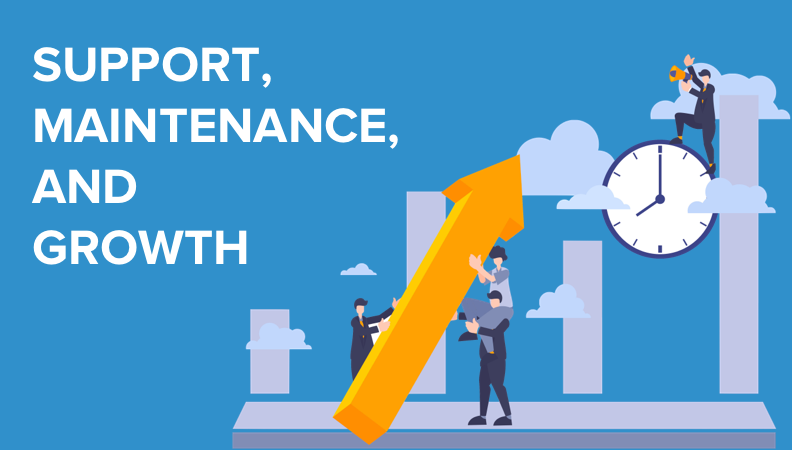- Solutions
- For Industry
- By Need
- Products
- VarbaseEnterprise CMS Distribution for Drupal
- Uber PublisherEnterprise Digital Media Platform Builder
- VardocDrupal Knowledge Base Platform
- Campaign StudioOpen Marketing Platform - by Acquia
- Open SocialSocial Business Platform - by Open Social
- Services
- Strategy
- Design
- Development
- Migration
- Support and MaintenanceSupport and Maintenance
- DevOps
- Digital Marketing

Datasheet

- Clients
- Ideas
- About
- Contact Us

8 Reasons to Get Excited About Drupal 8
As the last barriers to Drupal 8's launch dwindle, 2015 is shaping up to be a good year for the Drupal community. And though its release date isn't confirmed yet, let's take a look at 8 reasons why Drupal developers and anyone who is looking for an improved experience with their website should be excited for the impending arrival of Drupal 8:
1. Drupal 8 is Mobile First: Mobile websites and apps are the new reality, and so for the first time Drupal is addressing this comprehensively; all built-in themes in Drupal 8 are responsive, making it easier to administer on a mobile device.
2. Drupal 8 Enhances Multilingual Support: Programming languages aren't constrained by geopolitical boundaries, but traditional "human" languages are, creating barriers between developers and users; with Drupal 8, an emphasis on improved multilingual and globalization support has been prioritized to deliver improved web experiences for both users and developers. There are improvements to language maintenance options, site translations and easier-to-customize settings. This bodes well for developers and site users everywhere.
3. Drupal 8 Utilizes the Symfony2 Framework: Drupal 8 has become more object-oriented by utilizing the Symfony2 framework, taking advantage of a stack of standard components used throughout a variety of frameworks; this makes it easier for new developers to learn Drupal and begin building powerful digital products in less time.
4. Drupal 8 Uses Twig: Drupal 8 is also making use of "Twig," an agile and secure template engine for PHP. Twig has been tailored to run smoothly together with Symfony's class-based approach to programming, and it provides a greater separation between logic and display. This also helps boost security, since PHP can no longer be embedded directly in templates. And just like Symfony2, Twig removes barriers to entry for front-end developers new to Drupal, adopting a syntax that should be familiar to developers with experience with Handlebars or other similar systems.
5. Drupal 8 Makes Content Creation Easy: Drupal 8 uses the common WYSIWYG editor (a.k.a What You See is What You Get). This means the process of content creation, from formatting to editing, has been designed to be more user-friendly. Personalization of content is improved by drag and drop buttons that include images with captions, and the editor toolbar is customizable, allowing content authors to add or remove editing buttons based on what they use most. HTML tags will automatically update as well.
6. Improved Configuration Management: Drupal 8 comes with a file system-based configuration management system, which makes it simple to transport configuration changes such as new content types, fields, or views from development to production. It also lets you use version control for your configuration, so you can keep your configured data in files, separate from production data in the database.
7. Drupal 8 Won't be Wordpress: Despite being considered the most sophisticated CMS out of the 'Big Three' (the other two being Wordpress and Joomla), in recent years Drupal has failed to compete with Wordpress for overall market share. There's a variety of reasons for this, chiefly being Wordpress is less sophisticated and therefore easier to develop. Drupal 8 won't be a watered-down CMS attempting to pander to a wider audience of developers and clients. Drupal 8 will include features like Symfony2 and Twig that should lessen the learning-curve for developers—resulting in growth in the ranks of Drupal developers—but without sacrificing its core capabilities.
8. Drupal 8 Will be Better for Clients: With Drupal 8, the combination of user-friendly content authoring, multilingual support, and smooth interface features will make using Drupal-built sites easier than ever before, and improved back-end features will mean Drupal will be far more attractive to novice developers. This means it will be cheaper to build website as the Drupal community grows, and that clients will be receiving far more dynamic web solutions than their budgets could've gotten them previously.
So who is going to benefit from Drupal 8? Well, in theory everyone. Without sacrificing the complex architecture that sets it apart from other open source platforms, Drupal 8 should improve both user and developer accessibility, and it does both without becoming more proprietary. And best of all, skilled Drupal development teams like Vardot—who already build dynamic applications using Drupal 7—will have enhanced tools with which to continue creating beautiful web solutions; and that alone should give anyone who is looking for improved web and mobile experience a 9th reason to be excited for Drupal 8's impending release.
- Drupal
- Drupal 8



